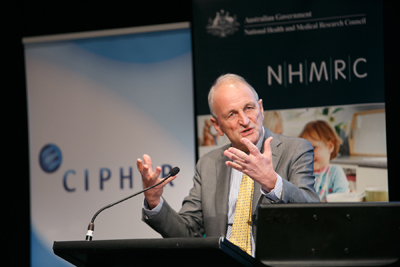
Kings Fund CEO Professor Chris Ham shares insights from a recent trip to Australia.

Cross national comparisons of health care systems are fraught with difficulty, as the WHO discovered in its ill-fated attempt in 2000 to rank the performance of 191 health care systems around the world. Notwithstanding the difficulties, health policy analysts continue to be fascinated by the opportunity to learn from different systems.
The OECD’s annual assessment of trends in affluent countries is a particularly rich and well referenced source of comparative information about health system performance. The most recent edition, released in November, makes sobering reading from a UK perspective. The OECD tells the story of an NHS under increasing pressure with results that in most cases are in the middle of the pack at best.
I read these results on my return from a week working in Australia where I heard of concerns about rising health care expenditures at a time of reduced economic growth. I also talked with health care leaders about plans to reform how care is delivered with a particular interest in greater integration of hospital, primary care and related services. Many of these leaders were curious about experience in the NHS of primary care led commissioning in the context of primary healthcare organisations taking on similar responsibilities in Australia.
What can we learn from each other as we grapple with similar challenges?
Our work at The King’s Fund has convinced us that integrated care is the right direction of travel but even in a single payer national health system it is challenging to deliver. Barriers include cultural differences between clinicians working in different settings, organisational and professional silos, and payment systems that reward activity rather than care that is well coordinated. We also face challenges in sharing patient information and realising the hoped-for benefits of an electronic care record. Despite this, integrated care remains a high priority both in government and the NHS.
Primary care led commissioning in England has also encountered major challenges. On the one hand, clinicians and managers may lack the skills and information needed to commission services effectively, while on the other the costs of commissioning often seem to exceed the benefits. In a new report, we have argued that commissioning in the NHS should be strategic and integrated in future, drawing on the expertise of GP-led clinical commissioning groups but operating on much bigger footprints than at present and bringing together budgets from different funding streams.
As this happens, there should be less emphasis on commissioning as an annual contracting process and more focus on the use of longer term contracts based on defined outcomes of care. The greater use of population-based capitated budgets by commissioners would help to stimulate the development of integrated care, as would alliance contracts under which providers collaborate to deliver outcomes. These ideas are being picked up in different parts of England and the huge financial pressures facing the NHS create a real sense of urgency in accelerating their adoption.
During my visit to Australia, I was struck by the common concern in both of our countries with the transparent reporting of information about the performance of health services. We have recently published a study of the system of devolved governance in the state of Victoria, in which one of our recommendations was that available data should be published both to inform the public about the quality of services and to enable providers to compare themselves with others and identify opportunities for improvement. When I was in Sydney, I met with staff at the Bureau of Health Information and was impressed with the work they are doing on transparency.
My experience in Australia has reminded me that cross national comparisons can be illuminating if used thoughtfully. Broad brush comparisons based on high level data have a part to play but much more useful is seeing different systems at first hand and understanding the cultural and other factors that help explain why they work differently. The grass may not always been greener on the other side and learning what isn’t working well can be as helpful as identifying innovations in care and examples of good practice.
Chris Ham is chief executive of The King’s Fund an independent foundation based in London that is involved in research and analysis in health care.
Find out more
- This blog was originally published on Web CIPHER
- Watch the video In conversation with Professor Chris Ham
- Join the Web CIPHER community and the website for health decision makers
- Read about the work of The Kings Fund
